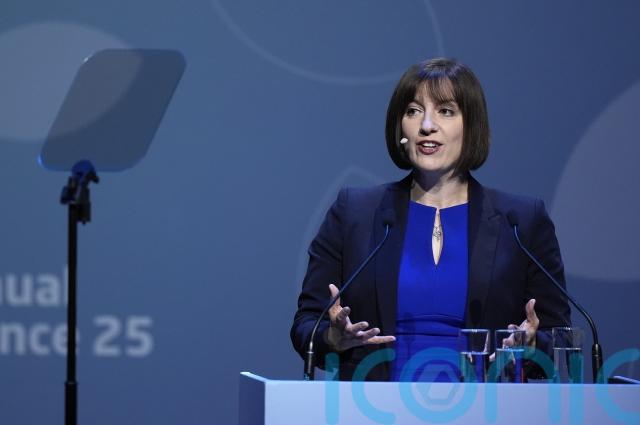
A new V-level qualification is to be rolled out in a major overhaul of the education system for pupils aged 16 to 19, the Department for Education (DfE) has announced.
Education Secretary Bridget Phillipson said vocational education has been seen as an “afterthought for too long” as she announced the new qualification.
Ministers are to set out plans for third route alongside A-levels and T-levels in a new white paper on post-16 education and skills, which will be published on Monday.
The DfE said the new qualification will replace the 900 vocational qualifications for 16 to 19-year-olds which are currently available alongside A- and T-levels.

It said the move will streamline the “confusing landscape” currently on offer.
The department said the move would also offer pupils more flexibility and let them explore key sectors – which could include include engineering, agriculture or digital – before deciding where to specialise.
It said the V-levels will offer more choice as pupils will be able to sit them alongside A-levels, unlike T-levels – which are equivalent to three A-levels.
Meanwhile, the DfE has also announced plans to support pupils to get the “vital pass” they need in English and maths GCSE.
Currently, students who do not achieve a grade 4 in maths and English GCSE are required to continue studying post-16 to pass the exams.
The rule is regularly criticised by sector leaders, and recently the Commons Education Select Committee said the policy is not working for the majority and urged the Government to change it.
The Government announced a new qualification will be “targeted at students with lower attainment as a stepping stone to better prepare them to resit these GCSEs”.
The DfE said the policy will particularly “support white working class pupils”, with those eligible for free school meals more likely to need to resit these exams compared to their more affluent peers.
Ms Phillipson said: “Technical and vocational education is the backbone of this country’s economy and central to breaking the link between background and success, helping hundreds of thousands of young people get the skills they need to get good jobs.
“But for too long it has been an afterthought. Young people have been left to navigate an overcomplicated landscape and repeatedly labelled as ‘failures’ by a system that has held them back from all-important English and maths grades.
“Through our plan for change we are turning the tide.
“Our reforms are building a post-16 education system that truly matches young people’s aspirations and abilities, delivering the opportunity and growth our economy needs.”
The Government said that it will launch a consultation to support the introduction of V-levels.
It added that T-levels will continue to expand to other subject areas.
Commenting on the announcement, Pepe Di’Iasio, general secretary of the Association of School and College Leaders, said: “We are pleased that the Government has recognised the importance of having a third vocational pathway to sit alongside the academic and technical qualifications offered by A-levels and T-levels.
“It is vital that post-16 students are provided with a choice of pathways which suit the interests and aspirations of different learners, and supports them in accessing higher education, apprenticeships, and careers.
“We have to get to grips with the fact that a very large number of young people are currently not in education, employment or training – ensuring that there are a range of excellent pathways available to all our students is essential in tackling this issue.
“We are also pleased with the recognition that a new approach is needed to support post-16 students in English and maths.
“This must move us away from the current morale-sapping system of mandatory GCSE resits.
“We need an approach which builds confidence in these subjects and gives young people the best possible opportunity to achieve qualifications of which they can be proud.”
Daniel Kebede, general secretary of the National Education Union, said: “The National Education Union welcomes today’s announcement as a significant step forward for vocational education.
“For too long, the post-16 qualifications framework has lacked coherence and clarity.
“While students following academic routes have benefited from a clear and structured pathway, those pursuing vocational options have too often faced a confusing and under-resourced system.
“These reforms present an important opportunity to deliver greater fairness, consistency and quality for all learners.”
He added: “The Government is right to have listened to teachers and school leaders who have long highlighted that repeatedly forcing students to resit English and maths GCSEs is both demoralising and ineffective.
“We now have the chance to build a system that engages every student, values a broad range of skills, and properly recognises their achievements.”
David Hughes, chief executive of the Association of Colleges, said: “There is a lot in this we have been seeking, from the ambition for a more joined-up system focused on local labour markets, productivity and helping adults and young people to get into and progress in good jobs, to a renewed focus on ensuring young people do not become or remain Neet – not in education, employment or training.”
Subscribe or register today to discover more from DonegalLive.ie
Buy the e-paper of the Donegal Democrat, Donegal People's Press, Donegal Post and Inish Times here for instant access to Donegal's premier news titles.
Keep up with the latest news from Donegal with our daily newsletter featuring the most important stories of the day delivered to your inbox every evening at 5pm.